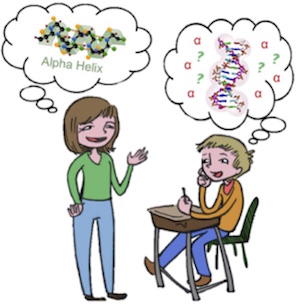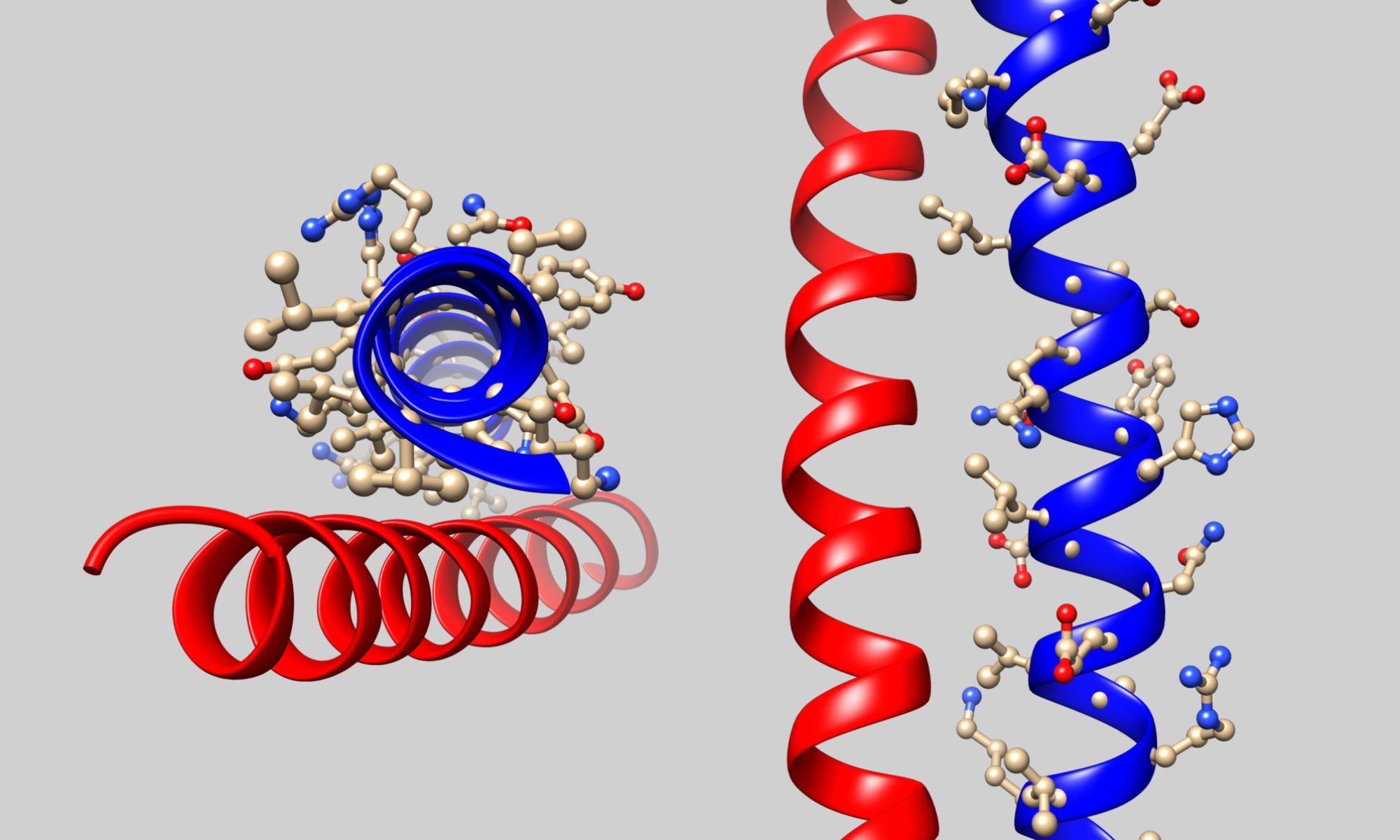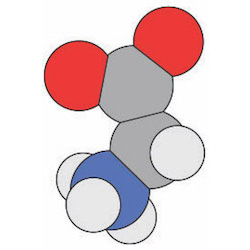
Visualization in the Classroom
Instructors often use biomolecular visualization (BMV) in our teaching. Through diagrams in textbooks, figures shown in class, or modeling activities, our students are flooded with macromolecular visual images. We hope (often expect!) that the students are having “aha!” moments with the renderings of cells, proteins, and complexes that we present. But, do our students really “see” what we see? Do they have the visual literacy skills necessary to glean the information that we expect them to understand from these biomolecular images?
A Framework for Assessing Biomolecular Visualization Skills
Since 2013, BioMolViz has been working to advance BMV instruction. Over the course of this work, faculty from 20 institutions have participated in project leadership through the steering committee, and we have engaged nearly 200 faculty through workshops, program training sessions, and working groups. Our first major product, the Biomolecular Visualization Framework (Dries et al. 2017) defined 12 overarching themes, partitioned into learning goals and testable objectives. One year of seed funding, awarded under the directorship of Dries, supported five one-day workshops (Procko et al. 2020) that convened faculty to write and revise biomolecular visualization assessments, crafted through backward design using the Framework. With nearly 100 assessment ideas in hand, Procko assumed directorship in 2018, and secured longer-term funding. Under her leadership, the second major product came to fruition, an assessment repository called the BioMolViz Library, which makes our tools available to any interested instructor (please visit the Library information page to request a free account). Publicly available assessments have undergone extensive peer review and, in many cases, have been validated through expert panel review and classroom testing. Our current efforts, led by Beckham and Procko, have focused on classroom testing of our assessments and understanding student perceptions (Beckham et. al, 2024). We continue to offer online and in-person workshops to develop assessments, with our most recent workshop held in May of 2024. Our most recent work involves the use of think-alouds to probe student problem solving methods, in an effort to understand performance differences among student groups.
Join our Network
If you are interested in joining our growing community of professionals dedicated to improving BMV instruction, we would be delighted to connect with you. Use the Contact page to email questions and to subscribe to our newsletter to learn about future workshops and events.
2024 Steering Committee
Kristen Procko, University of Texas at Austin (Project PI, RCN-UBE co-PI, co-Director)
Josh T. Beckham, University of Texas at Austin (RCN-UBE PI, co-Director)
Roderico Acevedo, Westfield State University (Associate Director)
Pamela Mertz, St. Mary’s College of Maryland (Associate Director)
Swati Agrawal, the University of Mary Washington
Shane Austin, The University of the West Indies
Charmita Burch, University of Maryland Eastern Shore
Kristin Fox, Union College
Rachel Mitton-Fry, Denison University
Didem Vardar-Ulu, Boston University
BioMolViz Fellows
Fellows are recognized for outstanding contributions to the project beyond workshop participation.
Lauren Genova, University of Delaware (2025 Fellow)
Roderico Acevedo, Westfield State University (2021 Fellow)
Swati Agrawal, University of Mary Washington (2023 Fellow)
Shane Austin, The University of the West Indes (2021 Fellow)
Charmita Burch, The University of Maryland Eastern Shore (2021 Fellow)
Kristin Fox, Union College (2022 Fellow)
Bonnie Hall, Grandview University (2022 Fellow)
Julie Himmelberger, DeSales University (2024 Fellow)
Pamela Mertz, St. Mary’s College of Maryland (2021 Fellow)
Rachel Mitton-Fry, Denison University (2022 Fellow)
Venkatesh Nemmara, Rowan University (2021 Fellow)
Harry Rahn, University of Michigan-Dearborn (2023 Fellow)
Craig Smith, Washington University in St. Louis (2024 Fellow)
Didem Vardar-Ulu, Boston University (2023 Fellow)
External Evaluators
Shelly Engelman, Custom Evaluation and Research Support
Kathleen Cornely, Providence College
2019 RCN-UBE Steering Committee (Award #1920270)
Kristen Procko, University of Texas at Austin (Project PI, RCN-UBE co-PI, Group Director)
Josh T. Beckham, University of Texas at Austin (RCN-UBE PI)
Daniel R. Dries, Chapman University (RCN-UBE co-PI, IUSE grant PI)
Henry V. Jakubowski, College of St. Benedict (IUSE grant co-PI)
Roderico Acevedo, Westfield State University
Diane Dean, Education Consultant
Margaret A. Franzen, Mount Mary University (IUSE grant co-PI)
Pamela Mertz, St. Mary’s College of Maryland
Walter R.P. Novak, Wabash College
Rebecca A. Roberts, Ursinus College
Audrey Shor, Saint Leo University
Alberto I. Roca, DiverseScholar
Founding Team Members (Past Members):
Paul A. Craig, Rochester Institute of Technology
Laura Listenberger, St. Olaf College
Cassidy R. Terrell, Univ of Minnesota
Funding Support
This material is based upon work supported by the National Science Foundation (NSF) under grants RCN-UBE #1920270 and NSF-IUSE #1712268. Any opinions, findings, and conclusions or recommendations expressed in this material are those of the authors and do not necessarily reflect the views of the National Science Foundation.

